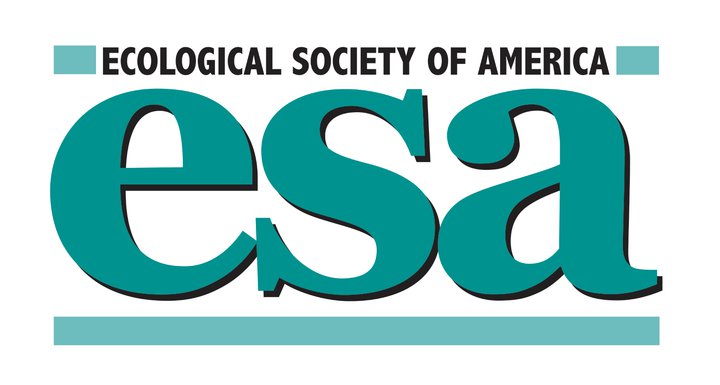Location
The Ecological Society of America (ESA) is a nonpartisan, nonprofit organization of scientists founded in 1915 to:
- promote ecological science by improving communication among ecologists;
- raise the public’s level of awareness of the importance of ecological science;
- increase the resources available for the conduct of ecological science; and
- ensure the appropriate use of ecological science in environmental decision making by enhancing communication between the ecological community and policy-makers.
Ecology is the scientific discipline that is concerned with the relationships between organisms and their past, present, and future environments. These relationships include physiological responses of individuals, structure and dynamics of populations, interactions among species, organization of biological communities, and processing of energy and matter in ecosystems.
Members:
Resources
Displaying 11 - 15 of 47Variation in the local population dynamics of the shortâlived Opuntia macrorhiza (Cactaceae)
Spatiotemporal variation in demographic rates can have profound effects for population persistence, especially for dispersalâlimited species living in fragmented landscapes. Longâterm studies of plants in such habitats help with understanding the impacts of fragmentation on population persistence but such studies are rare. In this work, we reanalyzed demographic data from seven years of the shortâlived cactus Opuntia macrorhiza var. macrorhiza at five plots in Boulder, Colorado.
socialâecological framework for âmicromanagingâ microbial services
Despite playing a central role in the regulation of ecosystem services, microorganisms are often neglected when evaluating feedbacks between social and ecological systems. A socialâecological framework is a tool for evaluating how social factors affect ecosystems through human actions and how ecological factors in turn affect social systems through ecosystem services.
Complex effects of fragmentation on remnant woodland plant communities of a rapidly urbanizing biodiversity hotspot
In many cities worldwide, urbanization is leading to the rapid and extensive fragmentation of native vegetation into small and scattered urban remnants. We investigated the effects of fragmentation on plant species richness and abundance in 30 remnant Banksia woodlands in the rapidly expanding city of Perth, located in the southwestern Australian global biodiversity hotspot.
Landâuse change: incorporating the frequency, sequence, time span, and magnitude of changes into ecological research
The frequency and extent of humanâinduced landâcover changes is escalating worldwide. Recurrent turnover of landâcover types will affect ecosystems over and above major, oneâtime changes (eg deforestation). Here, we show how a deeper appreciation of the temporal dynamics of landâcover change is needed to understand its effects on ecosystems.
Ecological homogenization of urban USA
A visually apparent but scientifically untested outcome of landâuse change is homogenization across urban areas, where neighborhoods in different parts of the country have similar patterns of roads, residential lots, commercial areas, and aquatic features. We hypothesize that this homogenization extends to ecological structure and also to ecosystem functions such as carbon dynamics and microclimate, with continentalâscale implications.


